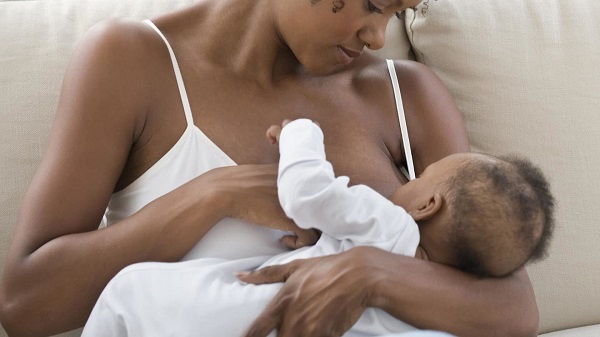The Mirror's Health , Lifestyle and Fashion

Should mothers with hepatitis B breastfeed?
Dear Ama, Mothers who are hepatitis B positive should still breastfeed but with certain conditions attached.
Advertisement
Firstly, the benefits of breastfeeding as explained last week far outweigh any potential risk of infection of hepatitis B infection.
Secondly, it is recommended that all infants born to hepatitis B positive mothers be vaccinated against hepatitis B at birth to reduce any potential risk of infection through breastmilk.
Lastly, there are post-exposure measures that if adhered to, can further reduce the potential risk of transmission through breastmilk. Because I have answered questions on hepatitis B and another on the benefits of breastmilk, I will concentrate on measures to reduce the transmission risk from mother to child for this week.
There is available hepatitis B vaccine and hepatitis B immunoglobin (HBIG) that are to be given to a baby born to a mother with hepatitis B soon after birth to reduce to the barest minimum any chance of transmission to the baby through breastfeeding.

All infants born to hepatitis B-positive women should receive single-antigen hepatitis B vaccine and HBIG less than 12 hours of birth
Put simply, the vaccine encourages the baby's immune system to produce its immunity against the hepatitis B virus (hence called active immunity) while the hepatitis B immunoglobin (HBIG) helps to mop up any viruses floating in the bloodstream (Passive immunity).
Both passive and active post-exposure prophylaxis with HBIG and hepatitis B vaccine and active post-exposure prophylaxis with hepatitis B vaccine alone has been demonstrated to be highly effective in preventing transmission after exposure to hepatitis B virus.
The use of HBIG alone has also been demonstrated to be effective in preventing hepatitis B virus transmission but with the availability of hepatitis B vaccine, HBIG typically is used as an adjunct to vaccination.
What determines how effective the post-exposure prophylactic measures would be is early administration of the initial dose of vaccine. The effectiveness diminishes the longer it is initiated after exposure.
Studies are limited on the maximum interval after exposure during which PEP is effective, but the interval should not exceed 7 days for mother to child transmission of hepatitis B virus.
Post-exposure prophylaxis with hepatitis B vaccine and HBIG administered between 12--24 hours after birth, followed by completion of a three-dose vaccine series, has been demonstrated to be 85-95 per cent effective in preventing acute and chronic hepatitis B virus infection in infants born to women who are hepatitis B positive.
Studies have also demonstrated that the HBIG when administered as late as 72- hours of birth is effective at curtailing the transmission of the virus. It stands to reason then that all mothers must be tested for the hepatitis B virus during pregnancy and a plan made regarding post-exposure prophylaxis for those found to be positive.
Because it is a bit costly, mothers are encouraged to buy the combined vaccine and immunoglobin (which is available on the market) before their due date so the baby gets the vaccine and immunoglobin right after birth.
The good news is that with the introduction of the pentavalent into our expanded programme of immunisation 18 years ago, the number of mothers who will be positive for hepatitis B will be dwindling soon so hepatitis B transmission to the baby may be a thing of the past.
The summary points to remember are ;
• All infants born to hepatitis B-positive women should receive single-antigen hepatitis B vaccine and HBIG less than 12 hours of birth, administered at different injection sites. The vaccine series should be completed according to a recommended schedule for infants and in Ghana that is six, 10 and 14 weeks.
• Post-vaccination testing for antibody to hepatitis B surface antigen and hepatitis B surface antigen testing should be performed after completion of the vaccine series, at age 9--18 months. Testing should not be performed before age 9 months to avoid detection of antibody from HBIG administered during infancy and to maximise the likelihood of detecting late hepatitis B infection.
• Infants of HBsAg-positive mothers may be breastfed immediately after birth once the post-exposure prophylactic measures are observed.
The other option which is not highly recommended because of the exceeding benefits of breastfeeding is resorting to exclusive formula feeding of the baby. This comes with its problems of cost, poor preparation and storage of the milk, diarrhoea etc. with exclusive formula feeding though, the risk of transmission of hepatitis B through breastfeeding is eliminated.
[email protected]
A member of Paediatric Society of Ghana





